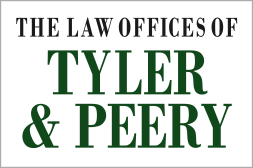It’s not uncommon to suffer a concussion or other type of traumatic brain injury (TBI) in a car crash or other type of accident, like a fall. TBIs can affect people in a multitude of ways, and the variety of symptoms reflects that.
A TBI can cause headaches, sensitivity to light and sound, memory problems and more. It depends on what part of the brain was injured and how seriously. Some TBIs even cause emotional and behavioral changes.
Doctors are often comfortable telling people who have suffered a TBI how much time to stay off work or out of school. However, when it comes to driving, some doctors offer little or no guidance. That’s in part because the medical community hasn’t been given as much solid guidance on that.
While it may be fine to tell patients not to return to work, school or sports until they’re no longer experiencing noticeable symptoms of a concussion, people often aren’t aware that their reflexes and perception are not yet back to normal. That can make for a potential tragedy if they get behind the wheel too soon.
A study found similar driving behaviors to drunk driving
One study involving a group of young people compared the driving skills of those who were two days past the end of any noticeable concussion symptoms compared with those who hadn’t suffered a concussion. This was done using a driving simulator.
The results were clear. Those who had suffered concussions engaged in driving behavior similar to someone driving drunk. That included swerving and a general lack of control. The author of the study called the results a “pretty large indicator” of the risk of a crash when people try to drive too soon after they’re “considered recovered” from their concussion.
This shows the importance of not trying to drive on your own after a concussion until you’ve had a few “test runs” with a licensed driver next to you to help ensure that you can do so safely. That can mean more lost wages, especially if your job requires driving, and potentially other expenses and damages.
If you’re seeking compensation from an at-fault driver for your injuries, it’s crucial to factor this in. That’s why it’s important not to settle too soon. Having legal guidance can help you seek the compensation you deserve.
